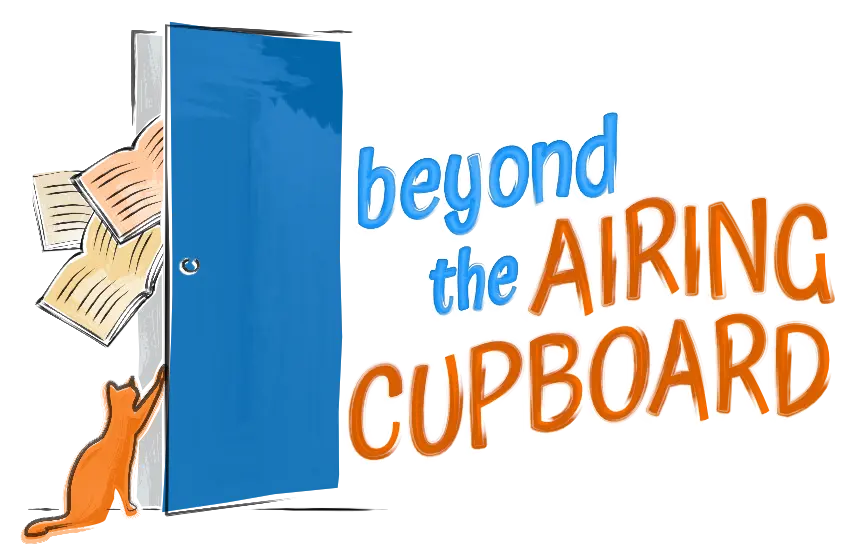Looking for something different to read, I walked along my bookshelves and came across these two. They took me back to my teaching days. For several years I ran a lunch time reading group for able readers in year 6, so 10 and 11 year olds. We read a chapter of a book and discussed it and then the children took their own copy home and read a further chapter to talk about the next week. It was enough to keep their interest going but not so much that they complained about the time it took!
The Elizabeth Laird book, ‘A little piece of ground’ (don’t confuse her with Elizabeth Luard who has written mostly cookery books and some volumes of memoir) writes of the experience of a young Palestinian boy living in amongst curfews and restrictions, his school life constrained and his family knowing the reality of constant fear as they hear Israeli tanks rolling through the streets of Ramallah, north of Jerusalem. This book was written in 2003, but no matter, sadly the situation would still be recognised by many today. It skilfully brings to life events that we still, decades later, hear reported daily in the news. The story is exciting and the narrative is propelled forward in such a way that the reader has to keep turning the pages. The publishers aim this book at young adults but maybe with a fully adult perspective the story is even more powerful and affecting.
Lynne Reid Banks, quite a prolific writer, died in her nineties a few months ago. Her fame came with her sequence of children’s books about ‘The Indian in the Cupboard’; stories that were very important in my house for several years. She married a Jewish sculptor, went to live in Israel and brought up three sons in a kibbutz before they decided life there was just too dangerous. They came to England where she lived for the rest of her life.
So here in ‘The Broken Bridge’ (1995) is the Jewish perspective. Set in a kibbutz, bordered by the River Jordan, a group of teenagers, siblings and cousins, are growing up. They have to find their way, morally and culturally through the literal and metaphorical barbed wire and land mines that form the boundaries of their lives, designed to keep the Arab villages cut off from Israel’s Settlements, but restrictive to both communities of course. It is difficult to pick out the main characters here as there are a whole group of them. The author seems to use this as a device for putting forward a range of views, political and otherwise. If it seems a little confusing, well, it is isn’t it? Nothing simple about the situation at all.
Having reread both books after a gap of maybe 12 years, it was slightly depressing to realise how modern they felt, even though the atrocities of 7th October 2023 and the destruction of Gaza, were then in the distant future. The emotion that comes through very clearly is, sadly, one of hate. I was going to say pure hate but that sounds rather like an oxymoron. The hatred of Israeli for Palestinian and vice versa runs so deep and seems to those on the outside to be beyond comprehension. Both authors try to find ways to navigate the age-old complexities but, as today, it feels impossible to even imagine a way forward to peace.
I’ve read reviews of the books by Michael Morpurgo and by Michael Rosen and both are of the opinion that these books should be on the school curriculum. I would agree. They deal with difficult issues in an accessible fashion … and are still an excellent read for an interested reader of any age.
Having read up about Lynne Reid Banks, it was intriguing to find that she had written an adult novel that had sold very well, long before her successful foray into children’s books.
The book is called: ‘The L Shaped Room’ and was first published in 1960. It is still in print but I bought my copy for a couple of pounds from Biblio. I wonder if any of you remember the BBC’s attempt at modernism when, in the early 1960s they broadcast ‘The Wednesday Play.’ It scandalised much of the press, offended many and gave Mrs Whitehouse plenty of fodder for her first demonstrations. Well, reading this book seemed like the written version of one of these programmes, quite gritty. It is before ‘The Pill’ and before the Abortion Act. The word ‘illegitimate’ is just whispered, and divorce is liable to make you socially unacceptable. I promise you, it took quite a few years for the permissive sixties to actually get going! In the book, Jane Graham finds herself pregnant and not in a useful relationship. She lives with her father until he tells her to leave when she confesses her situation. She takes a scruffy, very unpleasant room in a boarding house in Fulham, finds a job in a West End Hotel and considers how the next year will play out. Thinking that she wants to be alone, it soon turns out that she is wrong and she gradually gets to know the other residents in the house. The positive, affirmative take on the book is to see how one can find friends, kindness and indeed love in the most unexpected places.
Looking further, as I tend to do, Lynne Reid Banks wrote more and made this into a trilogy: ‘The Backward Shadow’ and ‘Two is Lonely.’ And, it turns out there is also a film of ‘The L Shaped Room.’ What riches to explore.
I have wandered rather in this Bookends but I hope you find something of interest to you.
